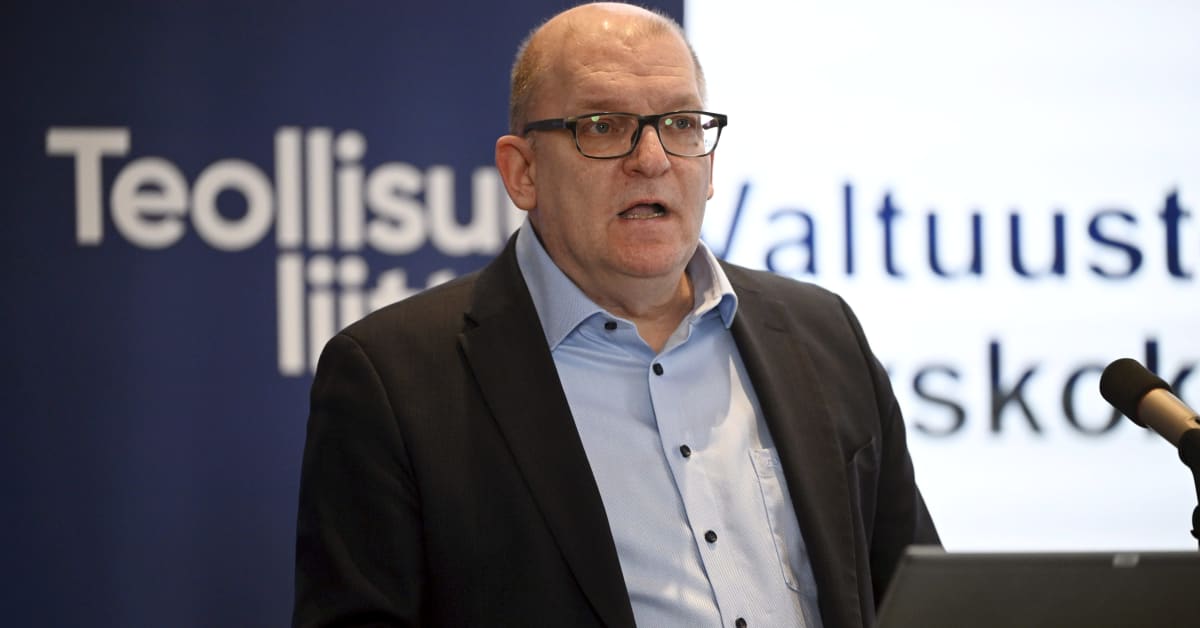- 5 Posts
- 87 Comments

 52·4 months ago
52·4 months agoThat is just its core function doing its thing transforming inputs to outputs based on learned pattern matching.
It may not have been trained on translation explicitly, but it very much has been trained on these are matching stuff via its training material. Since you know what its training set most likely contained… dictionaries. Which is as good as asking it to learn translation. Another stuff most likely in training data: language course books, with matching translated sentences in them. Again well you didnt explicitly tell it to learn to translate, but in practice the training data selection did it for you.

 0·4 months ago
0·4 months agoLisäksi jättää täysin huomiotta, että töissä käynnissä on kuluja/haittapuolia. On riski työtapaturmasta. Pitemmät krooniset ammattisairaudet ja vaivat. Kulut, työmatka, työruokailu jne.
Töissä käynti ei ole ilmaista, joten ihan ensimmäiseksi työkorvauksen määrän täytyy kattaa syntyvät lisäkulut. Sen jälkeen voidaan alkaa puhua henkilökohtaisen työhön käytetyn ajan korvaamisesta ja niin edelleen.

 7·4 months ago
7·4 months agoWell it could also be a lever or a switch.

 231·4 months ago
231·4 months agoNewer ever take Klarnas word for anything. They are the fine and Dandy company whose business model involved by routine fishing for customers bank authorization credentials.

 8·4 months ago
8·4 months agoWell difference is you have to know coming to know did the AI produce what you actually wanted.
Anyone can read the letter and know did the AI hallucinate or actually produce what you wanted.
On code. It might produce code, that by first try does what you ask. However turns AI hallucinated a bug into the code for some edge or specialty case.
Hallucinating is not a minor hiccup or minor bug, it is fundamental feature of LLMs. Since it isn’t actually smart. It is a stochastic requrgitator. It doesn’t know what you asked or understand what it is actually doing. It is matching prompt patterns to output. With enough training patterns to match one statistically usually ends up about there. However this is not quaranteed. Thus the main weakness of the system. More good training data makes it more likely it more often produces good results. However for example for business critical stuff, you aren’t interested did it get it about right the 99 other times. It 100% has to get it right, this one time. Since this code goes to a production business deployment.
I guess one can code comprehensive enough verified testing pattern including all the edge cases and with thay verify the result. However now you have just shifted the job. Instead of programmer programming the programming, you have programmer programming the very very comprehensive testing routines. Which can’t be LLM done, since the whole point is the testing routines are there to check for the inherent unreliability of the LLM output.
It’s a nice toy for someone wanting to make a quick and dirty test code (maybe) to do thing X. Then try to find out does this actually do what I asked or does it have unforeseen behavior. Since I don’t know what the behavior of the code is designed to be. Since I didn’t write the code. good for toying around and maybe for quick and dirty brainstorming. Not good enough for anything critical, that has to be guaranteed to work with promise of service contract and so on.
So what the future real big job will be is not prompt engineers, but quality assurance and testing engineers who have to be around to guard against hallucinating LLM/ similar AIs. Prompts can be gotten from anyone, what is harder is finding out did the prompt actually produced what it was supposed to produce.

 0·6 months ago
0·6 months agoStatistical photography aka computational photography aka supersampling. Statistically bin together number of smaller pixels to cut the amount of noise to create picture of a lower resolution than sensor level, but better quality.

 101·8 months ago
101·8 months agoSpecially in say foggy conditions and little bit distance. At which point you won’t clearly maybe differentiate individual elements and more like that’s the rear and “block of light in middle, left and right”. At which point it all little blending one might infact be under impression “the light intensity lowered at the rear, huh, not braking then, did they have they parking break dragging they released or something… ohhhjj shuiiiiiit no it is braking hard”.
My two cents from here north of Europe and land of snow, rain, fog and occasional white out conditions.

 2·8 months ago
2·8 months agoNot only they warned him. Reports are Tesla design department out of their own initiative and knowing how bad the proposed cyber truck was developed and alternate “sane” Tesla electric pickup truck proposal. When they tried to suggest it to Elon he reportedly didn’t want to here none about it and got mad.
He told the design boss just to make the existing design work. As we can see that didn’t end up going well.

 12·9 months ago
12·9 months agoHe is successful enough, old enough and made enough money, that he can just retire. Threatening him is an empty threat. He is 60 and probably given his long career earned more than he can spend in rest of his life, unless he goes super yacht and private jet crazy.
The whole show was a come back from retirement essentially. A voluntary indulgence on his part. Surely lucrative indulgence, but indulgence still. Apple needed him, he didn’t need Apple.
Most of the crew probably will leave for other project with a letter of recommendation from John in their pocket.

 322·9 months ago
322·9 months agoWell many adblockers can be clever enough to load the asset, but then just drop it. As in yeah the ad image got downloaded to browser, but then the page content got edited to drop the display of the add or turn it to not shown asset in css.
This is age old battle. Site owners go you must do X or no media. However then ad blocker just goes “sure we do that, but then we just ghost the ad to the user”.
Some script needs to be loaded, that would display the ad? All the parts of the script get executed and… then CSS intervention just ghosts the ad that should be playing and so on.
Since the browser and extension are in ultimate control. As said the actual add video might be technically “playing” in the background going through motions, but it’s a no show, no audio player… ergo in practice the ad was blocked, while technically completely executed.
Hence why they want to scan for the software, since only way they can be sure ad will be shown is by verifying a known adhering to showing the ad software stack.
Well EU says that is not allowed, because privacy. Ergo the adblocker prevention is playing a losing battle. Whatever they do on the “make sure ad is shown” side, adblocker maker will just implement counter move.

 37·9 months ago
37·9 months agoDon’t threaten us with good time, Elon.
Also no way he is going through. He is way too much in financial hole to give up European market. Like Google or Meta, sure they have the financial standing to maybe pull such move and survive.
Xitter? They need every visitor and account they can have globally to even think about staying viable.
Empty bluster and pointless empty bluster, since EU would just go “fine. Our continental economy or prosperity doesn’t depend on your social media company. Social media isn’t a critical industry, so we are just fine with you leaving. Plus there is 10 others like you anyway”.
You can’t threaten people with something that doesn’t damage them and heck might be seen as benefit.

 8·9 months ago
8·9 months agoIt will at minimum be a fight. It won’t just sail through. Also whole governments being against means one of them might challenge the law in to European Court of Justice. Since as nation-states also often have, EU itself has charter of rights part in the fundamental EU treaties. It also has normal limit and share of powers. EU Council and Parliament aren’t all powerfull. ECJ can rule a directive or regulation to be against the core treaties like Charter of Fundamental Rights of the European Union.
Said charter does include in it right to privacy (which explicitly mentions right to privacy in ones communications) and protection of personal data. Obviously none of these are absolute, but it means such wide tampering as making encryption illegal might very well be deemed to wide a breach of right to private communications.
Oh and those who might worry they wouldn’t dare at ECJ… ECJ has twice struck down the data protection agreement negotiated by EU with USA over “USA privacy laws are simply incompatible, no good enough assurances can be given by USA as long as USA has as powerful spying power laws as it has”. Each time against great consternation and frankly humiliating black eye to the Commission at the time.
ECJ doesn’t mess around and doesn’t really care their ruling being mighty politically inconvenient and/or expensive to EU or it’s memberstates. They are also known for their stance that privacy is a corner stone civil right (as stated in the charter and human rights conventions also, their legal basis) and take it very seriously as key part of democracy and protection of democracy. Without free and private communications and expression there can be no free political discussion, without free political discussion there can be no democracy.

 14·9 months ago
14·9 months agoAs I remember at the moment partly Von Der Leyen, the current Commission president. She is a German Christian democrat and apparently bit with capital C. Meaning she has bit of a moral panic streak on her of the “won’t you think of the children” variety. As I understand this current proposal is very much driven by her.
However her driving it doesn’t mean it sail through to pass as legislation. Some whole memberstate governments are against the encryption busting idea.

 9·9 months ago
9·9 months agoAlso I would add, not like this is unanimously supported in EU among memberstates. So this isn’t a done deal, this is a legislative proposal. Ofcourse everyone should activate and campaign on this, but its not like this is “Privacy activists vs all of EU and all the member state governments” situation. Some official government positions on this one are “this should not pass like it is, breaking the encryption is bad idea”.
Wouldn’t be first time EU commission proposal falls. Plus as you said ECJ would most likely rule it as being against the Charter of Rights of European Union as too wide breach of right to privacy.

 2·9 months ago
2·9 months agoalready enacted, vote went through in July. However the “come to force” of the earliest part of the regulation is 2025 and the replaceable battery mandate come to force date is 2027. However I would assume stuff starts going with replaceable battery 2025-2026, since by 2027 it’s illegal to not have that for on sale item. So one would transition year or two early to have ones retail and supply chains empty of the old non-replaceable stuff to avoid having unsold stock or get hit with punishment for being caught selling non regulation items*. So you want the replaceable battery products designed and in production before 2027.
Also one key I would point out, that is often left out. It doesn’t only cover phones. It covers pretty much all battery powered electronics. SO lots of those other small electronic gadget with built in Li-ions will start sprouting battery covers or possibly moving back to their old power of choice, banks of AAs. Since those are inherently replaceable. Well plus non-recycleables aren’t covered by the regulation. However also the maker can argue their green credibility with “well customer can put rechargeable AAs in it. Then it’s a replaceable battery product.”
* Well in reality one’s retail partners would refuse to accept the stuff for sale, since upon it being on sale at their shelf it’s now their ass on the firing line by regulators.

 2·9 months ago
2·9 months agoAlso I would add inflation went up, prices jumped. Meaning not so much free spending cash any more. People might have previously had the cash to update phone, just for sake of update even without it being necessary. Now days? People have way more important things they have to spend more money on.

 2·9 months ago
2·9 months agothird option is he sets up some kind of foundation or trust arrangement and testaments his shares to that trust, which is then run by board of trustees as per trust charter. Usually meaning “well board of trustees is entrusted to see to the continued profitable management of the company by selecting suitable new management as comes necessary” combined with possible whatever extra instructions there is as to how to and underwhat principles the company is to be run.
Be it either private trust to benefit the descendants/described beneficiaries or a charitable trust with funds to be used for charitable causes.
Family trusts aren’t that unheard of to exactly avoid the splintering of the ownership and thus risk take over bit by bit.

 1·9 months ago
1·9 months agoAt some point you really do just have enough money.
Well there is people to whom no amount of money is enough money. Not that it is at that point about, what you can do with that money. Rather by then the amount of money is a leader board and score board all to it’s own. The desire to be Forbes number 1 and then to be forbes number 1 with ever increasing lead to the number 2.
However all indications are, Gabe Newell isn’t one of those people. He would have had plenty of opportunities to cash out and then do some other business dealings to get ever bigger score card number. Don’t really know exactly what else it would tell of him or his character, but the one thing we can pretty confidently tell is “it seems he isn’t about just singularly amassing ever growing pile of wealth as large as possible”. He would have had plenty opportunity to enrich himself way more aggressively and he didn’t.

 1·9 months ago
1·9 months agoWhen Gabe Newell at some point leaves Valve, the company will change, no matter if it stays private or goes public.
Depends how that happens. Since frankly I think people think “the way Gabe Newell leaves ownership of Valve is by him eventually dying”. Since he has never shown any indication to sell. He has offered shares to employees as part of compensation packages, but as I understand even then he has controlling share.
So ofcourse the most simplest way is “Gabe dies and has done no special arrangement”… shares go to inheritance to his family. So his wife and children. Which might mean nothing changes or everything changes. Maybe he has given private last wishes, maybe not. However they get to decide. They might decide to keep the company as is. Since given they are inheritors of Gabes fortune, not like they would be immediately hurting for cash.
Second option is… Gabe does actual official arrangements. This isn’t unheard of in case of big private family or personal companies or holdings. For example he might put his shares in a foundation or trust with legally binding last wishes unlike non legally binding personal last wishes. Then what happens is whatever the trust charter is. Given example of say some European industrialist foundadtions like Bosch, instructions are left to run the company as commercial business by board of managers to best benefit of the company finances. However the one option the holders don’t have is “sell the company”, since the shares are hold up in the foundation/trust with instructions “never sell”. Company is to be run profitable enterprise as his and best ability of managers and then… the trust gets the profits and uses them for it’s purposes. It might be a private family trust, where upon the money is then shared to Gabes descendants, but don’t really have say in “we want to cash out, just lump sell our shares”. It could also be as in case of Bosch, that it is charitable foundation. After which all of the business profits of the Bosch conglomerate end up financing various charities, foundations, clinics and so on run by the Bosch stifftung.
It will change no doubt, since well Gabe isn’t there anymore with his personal personality and well each person has their own personality and influence. However it might not change as much as people think, if say his heirs decide to keep running the company based on same base ethos and principles as Gabe did.
That or everything might change. Two days after he dies, his estate sells Valve to Electronic Arts.




Main issue comes from GDPR. When one uses the consent basis for collecting and using information it has to be a free choice. Thus one can’t offer “Pay us and we collect less information about you”. Hence “pay or consent” is blatantly illegal. Showing ads in generic? You don’t need consent. That consent is “I vote with my browser address bar”. Thing just is nobody anymore wants to use non tracked ads…
So in this case DMA 5(2) is just basically re-enforcement and emphasis of previous GDPR principle. from verge
from the regulation
surprise 2016/679 is… GDPR. So yeah it’s new violation, but pretty much it is “Gatekeepers are under extra additional scrutiny for GDPR stuff. You violate, we can charge you for both GDPR and DMA violation, plus with some extra rules and explicity for DMA”.
I think technically already GDPR bans combining without permission, since GDPR demands permission for every use case for consent based processing. There must be consent for processing… combining is processing, needs consent. However this is interpretation of the general principle of GDPR. It’s just that DMA makes it explicit “oh these specific processing, yeah these are processing that need consent per GDPR”. Plus it also rules them out of trying to argue “justified interest” legal basis of processing case of the business. Explicitly ruling “these type of processing don’t fall under justified interest for these companies, these are only and explicitly per consent type actions”.